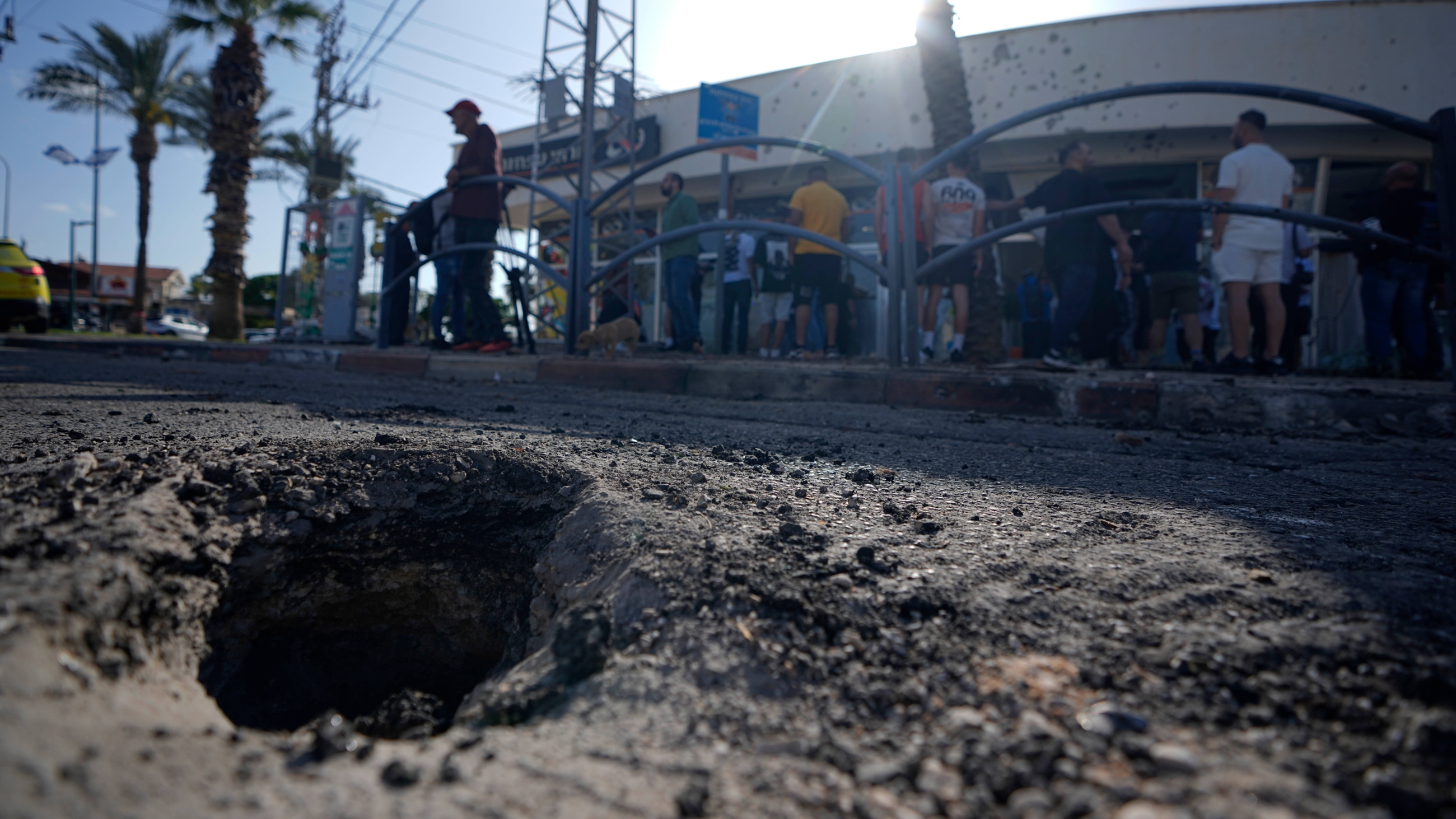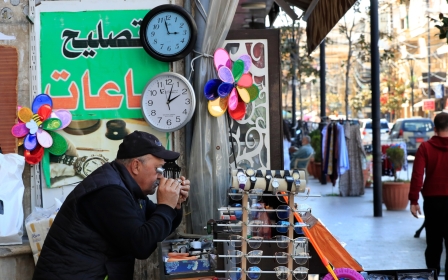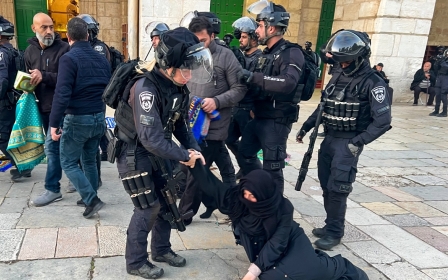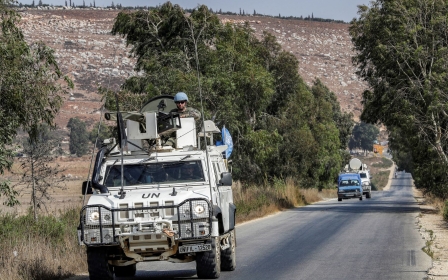Barrage of rockets fired at Israel from Lebanon as Al-Aqsa tensions mount

A barrage of rockets was fired into Israel from Lebanon on Thursday, as tensions over Israeli assaults on worshippers in Jerusalem's Al-Aqsa Mosque mount.
According to the Israeli military, 34 rockets were launched from Israel's northern neighbour, with five landing inside the country and causing damage to properties. Sirens sounded in the towns of Betzet and Shlomi in western Galilee.
Two people were slightly wounded by shrapnel, according to Israel's emergency services.
An Israeli military spokesperson said initial assessments indicate that Palestinian movement Hamas was behind the attack.
"The fire from Lebanon is very serious, and it testifies to a multi-front but single-organisation event, Hamas. We are examining it, but one thing is clear: The state of Lebanon is responsible when [rockets] are fired from it, and we are looking into Iranian involvement."
The rockets were fired from the town of Qlaileh near Tyre, a source from south Lebanon told Middle East Eye. Security sources told Reuters that Palestinian factions based in Lebanon were behind the attack, not Hezbollah.
Israel responded with artillery fire on south Lebanon as more situational assessments are being held by the military chief of staff and the internal security agency (Shin Bet) head.
Israeli Prime Minister Benjamin Netanyahu is convening his security cabinet for the first time since February to discuss the situation.
Shai Levy, a military reporter for Israeli news site Mako, said the salvo was "an unusual event that has not been seen in Lebanon for years".
The United Nations peacekeeping mission in Lebanon, the UN Interim Force in Lebanon (Unifil), described the situation as "extremely serious".
"Unifil urges restraint and to avoid further escalation," the mission said in a statement.
The Lebanese Foreign Ministry warned in a statement against about what it called "Israel's intentions to escalate the situation and threaten peace and security in the region".
"Lebanon strives for peace and stability and calls on the international community to put pressure on Israel to stop the escalation," the ministry added.
Though no claims of responsibility have been made, the launches come hours after Lebanon's Hezbollah movement warned it would support "all measures" taken by Palestinians in the wake of attacks by Israeli forces on Al-Aqsa Mosque in occupied East Jerusalem.
“Hezbollah forcefully denounces the assault carried out by the Israeli occupation forces against the Al-Aqsa Mosque compound and its attacks on the faithful," the Iran-backed Shia group said.
“Hezbollah proclaims its full solidarity with the Palestinian people and the resistance groups, and pledges that it will stand with them in all measures they take to protect worshippers and the Al-Aqsa mosque and to deter the enemy from continuing its attacks."
Hachem Safieddine, Hezbollah's executive council head, said after the attack Israel "must realise that Al-Aqsa Mosque is not alone and that millions of Muslims stand behind it ready to sacrifice their lives for it".
Although Hezbollah and Israel fought during Israel's 2006 invasion of Lebanon, which left 160 Israelis and 1,200 Lebanese dead, there have been little more than minor incidents since then.
Repeated assaults by Israeli forces on Al-Aqsa during Ramadan over the past two days have, however, provoked outrage internationally.
Planned mass incursions into Al-Aqsa Mosque by ultranationalist Israelis are also set last a week from Thursday to mark the Jewish holiday of Passover.
Middle East Eye propose une couverture et une analyse indépendantes et incomparables du Moyen-Orient, de l’Afrique du Nord et d’autres régions du monde. Pour en savoir plus sur la reprise de ce contenu et les frais qui s’appliquent, veuillez remplir ce formulaire [en anglais]. Pour en savoir plus sur MEE, cliquez ici [en anglais].




